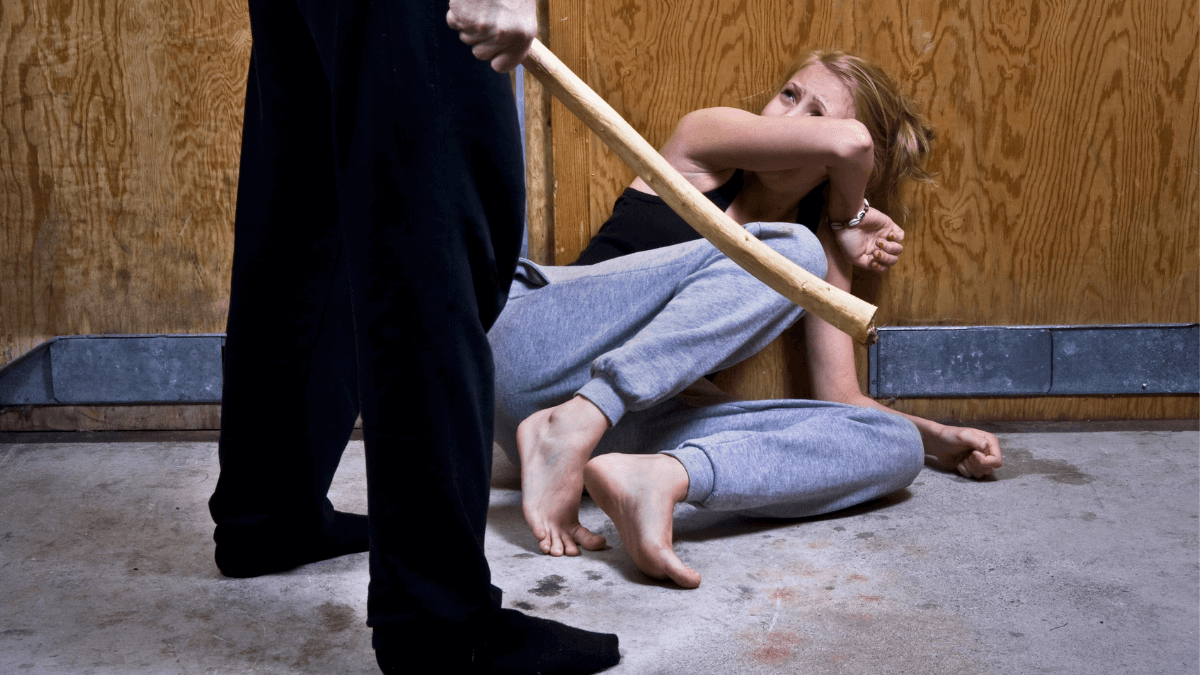Are you in a relationship with someone who is overly controlling, manipulative, and constantly puts you down? These are all signs of narcissistic abuse. It can be hard to identify, but it’s important to be aware of the signs so you can recognize it and take the necessary steps to protect yourself. In this article, I will discuss 9 signs of narcissistic abuse in relationships and how to deal with narcissistic abuse in relationships? After reading this article , you will able to know that What narcissists do in relationships.
What is narcissistic abuse?
Narcissistic abuse is a form of emotional abuse in which one person in a relationship uses excessive control or manipulation to maintain dominance over the other. Victims may experience humiliation, intimidation, isolation, and fear.
Narcissistic abusers often use grandiose statements, lavish compliments, and unreasonable demands to promote their own self-image. They may make themselves the center of attention at all times, take credit for everything good that happens in a relationship, and devalue their partner’s feelings and accomplishments.
Here are 9 signs of narcissistic abuse in relationships:
1. Lack of empathy

Lack of empathy is a common sign of narcissistic abusers in relationships. Narcissistic abusers often show little or no concern for the feelings or needs of their partners, and may even actively disregard or dismiss them.
Some signs of lack of empathy in narcissistic abusers include:
- Disregarding or dismissing their partner’s emotions: Narcissistic abusers often minimize or dismiss their partner’s feelings, telling them they’re overreacting or being too sensitive.
- Refusing to take responsibility for their actions: Narcissistic abusers often refuse to acknowledge their role in conflicts, and may even blame their partner for problems in the relationship.
- Lack of emotional support: Narcissistic abusers may be emotionally unavailable, providing little or no emotional support to their partner.
- Ignoring their partner’s needs: Narcissistic abusers may focus solely on their own needs and desires, without considering their partner’s needs or desires.
- Manipulating their partner’s emotions: Narcissistic abusers may use emotional manipulation to control their partner, using guilt, fear, or other tactics to get their way.
2. Repeatedly putting you down
Repeatedly putting you down is another sign of narcissistic abuse in relationships. Narcissistic abusers often engage in this behavior to undermine their partner’s self-esteem and sense of self-worth, making them more dependent on the abuser.
Some signs of repeated put-downs in narcissistic abuse include:
- Criticizing and belittling: Narcissistic abusers may criticize their partner’s appearance, intelligence, or abilities, often in a mocking or belittling way.
- Name-calling and insults: Narcissistic abusers may call their partner derogatory names or use insults to attack their self-esteem.
- Gaslighting: Narcissistic abusers may use gaslighting tactics to make their partner doubt their own perceptions or memories of events.
- Comparison to others: Narcissistic abusers may compare their partner unfavorably to other people, making them feel inadequate and inferior.
- Public humiliation: Narcissistic abusers may put down their partner in front of others, including family, friends, or even strangers, to embarrass and shame them.
3. Constantly seeking your approval

Constantly seeking your approval can also be a sign of narcissistic abuse in relationships. Narcissistic abusers often engage in this behavior to maintain control over their partner and to validate their own sense of self-worth.
Some signs of constantly seeking approval in narcissistic abuse include:
- Need for constant attention: Narcissistic abusers may require constant attention and praise from their partner, often becoming upset or angry if they don’t receive it.
- Constant validation-seeking: Narcissistic abusers may ask for constant reassurance that they are loved, valued, or attractive, even if their partner has already provided this validation.
- Over-the-top gestures: Narcissistic abusers may engage in grandiose or over-the-top gestures to try to win their partner’s approval, such as expensive gifts or extravagant vacations.
- Putting on a false persona: Narcissistic abusers may put on a false persona, pretending to be someone they’re not in order to win their partner’s approval and admiration.
- Blaming their partner for not giving enough validation: Narcissistic abusers may blame their partner for not giving them enough attention or validation, even if their partner has given them plenty.
4. Making decisions based on how they will affect you, not what is best for you or the other person

Making decisions based on how they will affect you, not what is best for you or the other person, is another sign of narcissistic abuse in relationships.
Narcissistic abusers often prioritize their own needs and desires over those of their partner, and may make decisions that are harmful or hurtful to their partner in order to maintain control or boost their own sense of self-worth.
Some signs of this type of behavior in narcissistic abuse include:
- Prioritizing their own needs: Narcissistic abusers may prioritize their own needs and desires over their partner’s, even if it means neglecting their partner’s needs or causing harm.
- Ignoring your needs or feelings: Narcissistic abusers may dismiss or ignore your needs or feelings, even if they are important to you.
- Blaming you for their decisions: Narcissistic abusers may blame you for their decisions, even if they are clearly the ones at fault.
- Using decisions to control you: Narcissistic abusers may use their decisions to control you, by making you feel guilty or using the threat of consequences to keep you in line.
- Making unilateral decisions: Narcissistic abusers may make decisions unilaterally, without consulting you or taking your input into account.
5. Manipulating relationships for their own benefit

Manipulating relationships for their own benefit is another sign of narcissistic abuse in relationships. Narcissistic abusers often seek to control and manipulate their partner and the dynamics of the relationship in order to benefit themselves, rather than considering the needs or well-being of their partner.
Some signs of this type of behavior in narcissistic abuse include:
- Manipulating your emotions: Narcissistic abusers may use emotional manipulation to control you, by making you feel guilty, ashamed, or fearful.
- Isolating you from others: Narcissistic abusers may try to isolate you from friends, family, or other sources of support, in order to maintain control over you and the relationship.
- Twisting the truth: Narcissistic abusers may twist the truth or manipulate facts to serve their own agenda, even if it means lying or deceiving their partner.
- Playing mind games: Narcissistic abusers may engage in mind games or power struggles, such as withholding affection or attention, in order to maintain control and manipulate their partner’s behavior.
- Using charm or flattery: Narcissistic abusers may use charm or flattery to win over their partner or gain their trust, but then use this trust to manipulate or control them.
6. Taking advantage of your emotions

Taking advantage of your emotions is another sign of narcissistic abuse in relationships. Narcissistic abusers often exploit their partner’s emotional vulnerabilities in order to maintain control over the relationship and gain power over their partner.
Some signs of this type of behavior in narcissistic abuse include:
- Playing on your fears: Narcissistic abusers may play on your fears and anxieties to keep you in line or make you feel like you need them.
- Blaming you for their behavior: Narcissistic abusers may use your emotions, such as guilt or fear, to blame you for their own bad behavior, rather than taking responsibility for their actions.
- Using emotional blackmail: Narcissistic abusers may use emotional blackmail to get what they want from you, by threatening to harm themselves or the relationship if you don’t comply with their demands.
- Withholding affection: Narcissistic abusers may withhold affection or attention to punish you or gain control over the relationship, playing on your emotions to make you feel like you need their approval or attention.
7. Threatening or using violence to control you

Threatening or using violence to control a partner is a clear sign of narcissistic abuse in relationships. Narcissistic abuse refers to a pattern of controlling, manipulative, and abusive behaviors that a narcissistic partner uses to maintain power and control over their partner.
In the case of threatening or using violence, the narcissistic partner may use physical, emotional, or psychological abuse to control their partner’s behavior, thoughts, and emotions. This may include:
- Physical violence: The narcissistic partner may use physical force, such as hitting, slapping, or pushing, to intimidate and control their partner.
- Emotional abuse: The narcissistic partner may use emotional abuse, such as yelling, name-calling, and gaslighting, to make their partner feel inadequate, worthless, and powerless.
- Psychological abuse: The narcissistic partner may use psychological abuse, such as threats of harm or isolation, to control their partner’s behavior and thoughts.
These types of behaviors are intended to instill fear and anxiety in the partner, which can cause the partner to feel dependent on the narcissistic partner for their emotional and physical safety. Over time, the partner may begin to feel trapped and helpless, leading to feelings of depression, anxiety, and trauma.
8. Isolating you from friends and family


Isolating you from friends and family is another sign of narcissistic abuse in relationships. Narcissistic abusers often seek to control their partner’s relationships and social connections in order to maintain power and control over the relationship.
Some signs of this type of behavior in narcissistic abuse include:
A. Criticizing your friends and family
Narcissistic abusers may criticize your friends and family members, making it difficult for you to maintain close relationships with them.
B. Making you feel guilty for spending time with others
Narcissistic abusers may make you feel guilty for spending time with friends or family, making it difficult for you to maintain close relationships with them.
C. Creating drama or conflict with others
Narcissistic abusers may create drama or conflict with your friends or family members, making it difficult for you to maintain healthy relationships with them.
D. Limiting your contact with others
Narcissistic abusers may limit your contact with friends or family members, either by physically preventing you from seeing them or by creating emotional barriers that make it difficult for you to maintain close relationships with them.
E. Encouraging dependency on the abuser
Narcissistic abusers may encourage you to become more dependent on them for emotional support or companionship, making it less likely that you will seek out other relationships or sources of support.
9. Using Sex as a tool

Using sex as a form of control or manipulation is another sign of narcissistic abuse in relationships. Narcissistic abusers may use sex as a means of exerting power and control over their partner, rather than engaging in sexual intimacy based on mutual respect and consent.
Some signs of this type of behavior in narcissistic abuse include:
A. Withholding sex
Narcissistic partners may withhold sex or affection as a means of punishing or controlling their partner.
B. Coercing or pressuring their partner
Narcissistic abusers may pressure or coerce their partner into engaging in sexual activities that they are uncomfortable with, or using sex as a bargaining chip to get what they want.
C. Treating their partner like an object
Narcissistic abusers may view their partner as an object for their own sexual gratification, rather than as a person with their own needs and desires.
D. Using sex to maintain power and control
Narcissistic abusers may use sex to maintain a sense of power and control over their partner, rather than engaging in mutual sexual intimacy based on respect and consent.
E. Engaging in sexual activities outside of the relationship
Narcissistic abusers may engage in sexual activities outside of the relationship without their partner’s knowledge or consent, betraying their trust and causing emotional harm.
How narcissists use sex and what are sexual narcissists ? Read here about sexual narcissists.
Dealing with Narcissistic abuse in relationships
There are many ways to respond to narcissistic abuse in relationships. Here are four tips:
A. Recognize the warning signs
Recognize the warning signs that someone you know may be in a abusive relationship. These include feeling like you’re always walking on eggshells, feeling like you can’t express yourself or your feelings, and feeling like you’re always performing to an unrealistic standard.
B. Talk about what’s happening
Talking about what’s going on can help identify and understand the signs of narcissistic abuse.
It can also help ensure that both you and your partner feel heard and supported.
C. Set boundaries
It’s important to set boundaries with your partner, even if it feels like they won’t listen or don’t care.
This will help protect yourself from being controlled or manipulated by them, and will also let them know where their actions are going too far.
D. Don’t stay silent
If you’re experiencing narcissistic abuse, speaking up is the best way to get support and move forward in a healthy way. Talking about how you’re feeling can be difficult, but it’s essential for your long-term mental health and well-being.
Seek outside help if needed. If you find that you can’t deal with the situation on your own, consider seeking outside help such as therapy or counseling..
Conclusion
If you are experiencing any of the following in your relationship, it might be time to seek help: feeling like you are walking on eggshells around your partner; feeling like they can do no wrong; being made to feel ashamed or embarrassed; having your movements and thoughts constantly monitored.
If you think that you or someone you know is in a abusive relationship, please don’t hesitate to reach out for help.
